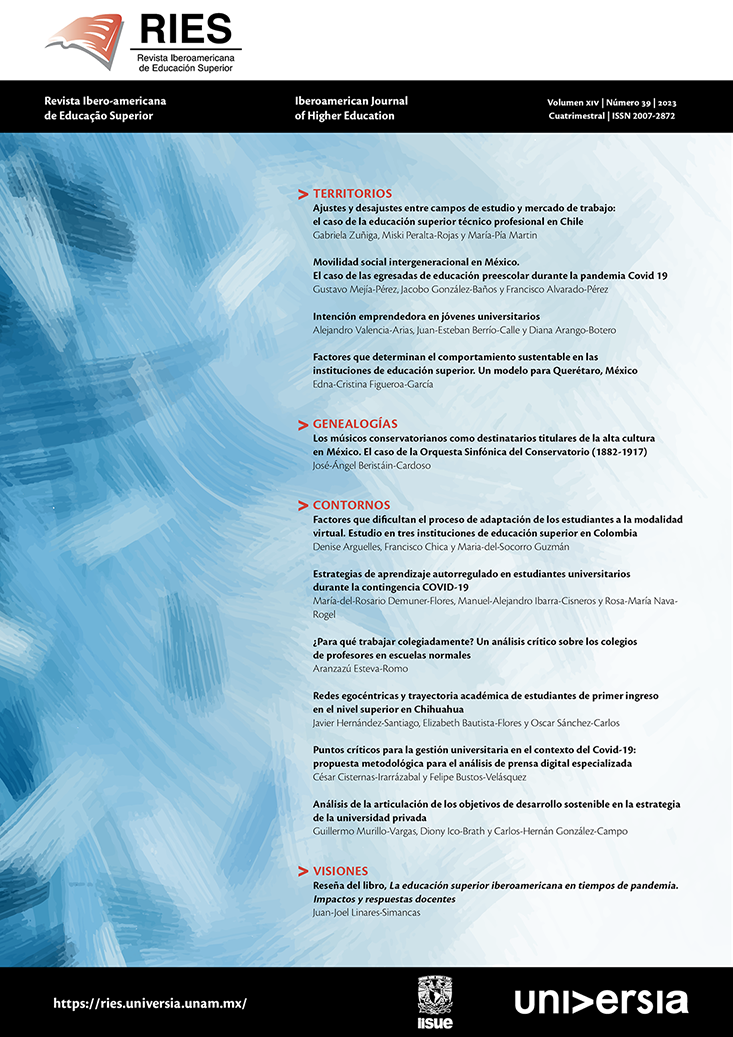Factors that hamper the virtual students' adaptation process to the virtual modality. Study in three higher education institutions in Colombia
DOI:
https://doi.org/10.22201/iisue.20072872e.2023.39.1531Keywords:
virtual modality, autonomy, emotions, academic issues, communication, interaction, ColombiaAbstract
The research aims to determine the factors that, in the areas of autonomy, academic activities, emotions, communication and interaction, have an impact on the adaptation skills of virtual students in higher education in Colombia. The study, based on both a qualitative and descriptive approach, was carried out with 1179 students from Universidad Ean, Politécnico Gran Colombiano and Fundación Universitaria del Área Andina, enrolled in undergraduate programs that took place in virtual mode in three cycles: first semester; fourth and fifth semesters; and seventh, eighth and ninth semesters, considering the varying duration of these programs. This research was carried out at the same time, so that the students in each training cycle are different. The results show that, for the five areas mentioned above, the behavior of the data is very similar in the three training periods, which means that the perception of the students coincides for what regards the level of impact attributed to each of the factors on which they were asked about.



